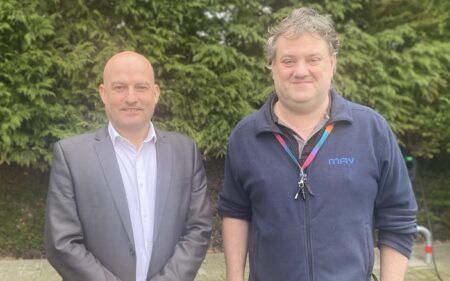Fleet organizations representing the users of millions of cars, vans and trucks have come together to discuss the proposed Leeds Clean Air Zone (CAZ) at a roundtable event in the West Yorkshire city in the UK.
The meeting was jointly hosted by the British Vehicle Rental and Leasing Association (BVRLA), the Energy Saving Trust and Leeds City Council. Also present were the Association of Car Fleet Operators, and a number of national and regional fleet operators.
The roundtable is the first of a number of similar events organized in cities across the UK that are planning Clean Air Zones, as part of their initiative tackling poor local air quality. Local and city authorities identified as having severe air quality issues are required to submit plans for their CAZs to central government by March this year.
The government has set out criteria around which types of vehicles can be charged to access the CAZ. Leeds City Council has opted to design a CAZ that will charge trucks and taxis for access, unless they meet the higher Euro VI emission standards.
To coincide with the Leeds event, the BVRLA has published a new factsheet outlining its proposals for a fleet-friendly air quality policy. As well as highlighting the clean air credentials of the vehicle rental, leasing and car club sectors, the document also urges policymakers to focus on three priorities when considering CAZs and other air quality measures:
• Providing a managed transition for businesses and individuals – attention should be given to those that cannot afford to upgrade their vehicles;
• Ensuring that CAZs are a catalyst for behavior change – local residents and businesses should be encouraged and incentivized to consider more sustainable vehicles or modes of transport;
• More incentives for Low Emission Vehicles – policymakers can do more to stimulate the first- and second-hand market for low emission vehicles, particularly electric ones.
“Leeds CAZ will be a major development in the history and development of the local area. It will affect hundreds of thousands of people not just in Leeds, but across the region,” noted Gerry Keaney, BVRLA’s CEO.
“It’s vital that the development of the CAZ is based on wide consultation to maximize its effectiveness. It is important that CAZs and other air quality measures are not just seen as a punitive stealth tax or piece of red tape. We all want to see fewer, cleaner vehicles used in cities, and the best chance of delivering this new vision of urban mobility will come from working together.”




